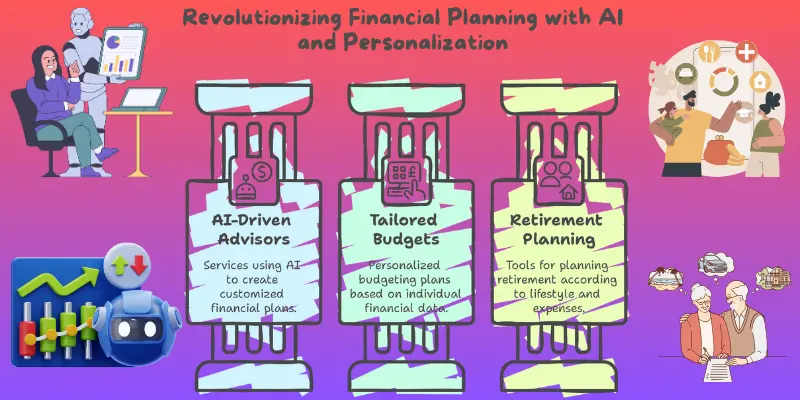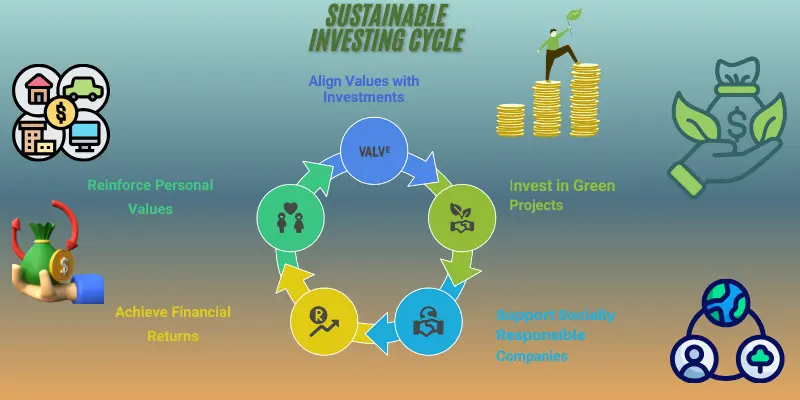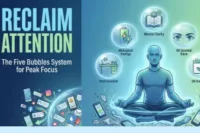Financial Wellness Trends in 2025: What You Need to Know
Published: 27/03/2025
Imagine this: You check your bank account after payday, only to be met with a sinking feeling. Bills, loans, and that never-ending to-do list of financial worries are right there in front of you. It’s frustrating, and if you’re like most people, it’s hard to feel in control of your money.
But what if 2025 could be the year you turned that around? What if small changes in how you manage your finances could make a big difference in your peace of mind and future security?
In this post, we’ll share some of the most important financial wellness trends for 2025—simple, actionable ideas that could help you manage your money better, save more, and feel more in charge of your financial future. Curious to know how you can start building a more stable financial life? Keep reading, and find out what’s really working this year to make a difference.
Smart Money Management: The Rise of Digital Tools
With the increasing reliance on technology, digital tools have become a game-changer for managing personal finances. These tools make it easier for people to track spending, save money, and plan for the future. Here’s what’s driving this trend:
- Budgeting Apps: Simple, easy-to-use apps like Mint or YNAB that help users track where their money is going and set realistic spending limits .
- Investing Platforms: Start investing in stocks or ETFs with apps like Robinhood or Acorns.
- All-in-One Finance Tools: Use platforms like Monarch Money to view all your accounts in one place.
These tools are especially useful for young professionals who are just starting to build their financial health.
Pro Tip: Even if you’re new to budgeting, using a simple app can help you see where your money is going—and where you can cut back.
Personalized Financial Planning Is No Longer Just for the Wealthy
Personalized financial planning is no longer a luxury; it’s becoming a necessity for many people. Here’s how it’s changing the way we manage money:

- AI-Driven Advisors: Services that use artificial intelligence to create customized financial plans.
- Tailored Budgets: Personalized budgeting plans based on your income, goals, and spending habits.
- Retirement Planning: Tools that help plan for retirement based on your age, desired lifestyle, and expected expenses.
For someone just starting out or looking to improve their finances, these services help create a roadmap to achieve long-term financial goals.
Why Emergency Funds Matter More Than Ever
Emergency funds have always been important, but in today’s uncertain world, they’re more crucial than ever. Here’s why:
- Financial Safety Net: Emergency funds help cover unexpected costs like medical bills or car repairs without going into debt.
- Peace of Mind: Knowing you have money set aside for emergencies reduces financial stress.
- Start Small: Even setting aside small amounts regularly can build a significant emergency fund over time.
For young professionals, starting an emergency fund as early as possible helps ensure you’re ready for whatever life throws at you.
Making Money While Supporting What You Believe In
More people are looking at where their money goes and making sure it aligns with their values. Sustainable investing is about putting money into companies or projects that do good for the environment and society.

- Green Investments: Funds and stocks focused on clean energy and reducing carbon footprints.
- Socially Responsible Companies: Investing in companies that treat their workers fairly and give back to communities.
- Impactful Decisions: Your investments can help make a positive difference while also earning returns.
For those wanting to invest responsibly, this trend allows people to grow wealth while also supporting causes they care about.
Your Job Might Start Helping You with Your Money
Employers are starting to recognize that financial wellness is a big part of overall employee well-being. Here’s why it’s becoming more common:
- Financial Education Programs: Workshops or resources to help employees better manage their finances.
- Retirement Planning Support: Employers offering better 401(k) options and matching contributions.
- Emergency Savings Plans: Some employers even offer emergency savings accounts to help employees prepare for unexpected costs.
If you’re working for a company, check if they offer these programs to make managing your finances a bit easier.
Student Loan Stress: How to Tackle Debt in 2025
Student loans are a heavy burden for many, but there are ways to manage them effectively. Here are some tips:
- Loan Forgiveness Programs: Some jobs, like those in the public sector, offer loan forgiveness after a certain number of years.
- Refinancing Options: Lowering interest rates by refinancing loans can save you money over time.
- Debt Snowball Method: Pay off your smallest debts first to build momentum, then tackle larger debts.
If you’re dealing with student loans, finding the right strategy is key to taking control of your debt.
The Link Between Money and Mental Health
There’s a strong connection between money and mental well-being. Financial stress can affect your mood and decision-making, but managing your finances well can help ease that burden.
- Financial Stress Reduction: Having a clear budget and saving regularly helps reduce anxiety about money.
- Mindful Money Management: Being mindful about your spending habits can lead to healthier financial decisions.
- Professional Help: Speaking to a financial advisor can help ease concerns and provide clarity on what steps to take.
Taking care of your finances can make a big difference in your mental health, so it’s worth paying attention to both.
“Nearly 48% of respondents reported money as their main concern, impacting their mental health significantly.“ News Corp Australia and Medibank Survey, as reported in the Herald Sun.
Conclusion
Managing your finances in 2025 doesn’t have to feel overwhelming. With the right tools and strategies, you can take small steps today that make a big difference in your future.
Key Takeaways:
- Digital tools are transforming personal finance management, making budgeting, saving, and investing easier.
- Personalized financial planning is more accessible, helping people create tailored financial strategies for long-term success.
- Emergency funds are essential for providing financial security and reducing stress in unexpected situations.
- Sustainable and ethical investing is on the rise, allowing people to support causes they care about while growing their wealth.
- Financial wellness programs at work are becoming more common, offering resources to help employees manage their finances.
- Managing student loans effectively is crucial to avoiding long-term debt burdens.
- Mental health and financial wellness go hand-in-hand; taking control of your finances can significantly improve your well-being.
Be cautious not to over-rely on digital tools without fully understanding your financial goals. It’s easy to get caught up in trends, but remember that personal finance is about your unique situation. Avoid common mistakes like skipping the fine print when choosing investment platforms or ignoring small debt repayments.
Want to take control of your financial future? Start by making small changes today—subscribe to our newsletter for more tips, and don’t forget to share your thoughts in the comments below! We’d love to hear what trends you’re excited about for 2025!
Financial wellness in 2025 is about staying proactive with your finances and adapting to emerging trends. Don’t wait for the “perfect moment” to start; even small steps now can have a huge impact on your financial future. Begin today and watch how taking control of your finances can lead to greater peace of mind and a stronger foundation for tomorrow.
Financial wellness isn’t about being perfect with money—it’s about making intentional choices that align with your goals. The key to long-term financial success is consistency, whether it’s saving a little each month, automating investments, or simply tracking your spending.Dave Ramsey, Financial Expert and Author of The Total Money Makeover
FAQs
Expect even more advanced AI financial advisors, better access to financial education, and stronger digital security for online transactions. The focus will continue to be on making financial management simpler and more accessible for everyone.
Start by creating a simple budget, tracking expenses, and building an emergency fund. Using budgeting apps and learning about smart saving and investing habits can also help improve financial stability over time.
Some key trends include the rise of AI-powered budgeting tools, increased use of digital payment solutions, growing interest in sustainable investing, and a stronger focus on financial education in schools and workplaces.
It depends on the fund. Many ESG funds perform just as well as traditional ones.
Consider refinancing, applying for loan forgiveness, or using the Debt Snowball method.
A good rule of thumb is 3-6 months’ worth of expenses in a savings account.

- Be Respectful
- Stay Relevant
- Stay Positive
- True Feedback
- Encourage Discussion
- Avoid Spamming
- No Fake News
- Don't Copy-Paste
- No Personal Attacks

- Be Respectful
- Stay Relevant
- Stay Positive
- True Feedback
- Encourage Discussion
- Avoid Spamming
- No Fake News
- Don't Copy-Paste
- No Personal Attacks





